Alas! “East Pakistan” is Coming Back! Can Bangladesh Retain its Democratic Structure?
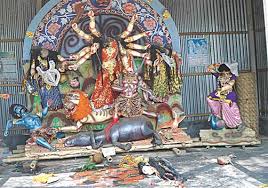
The recent turmoil in Bangladesh has plunged the nation into one of its most severe political crises since its independence. What started as a protest against a seemingly minor issue—a student-led movement against the government’s reintroduced quota system—quickly escalated into a nationwide demand for Prime Minister Sheikh Hasina’s resignation. The situation has left many wondering whether Bangladesh is on the brink of losing its democratic framework, with eerie parallels being drawn to its days as “East Pakistan.” Let us see what has happened in the Bangladesh crisis.
What Happened in the Bangladesh Crisis?
The Bangladesh crisis erupted in response to widespread student protests that initially targeted the government’s reinstatement of a controversial quota system in government jobs. The quota system, which reserved a significant percentage of government jobs for certain groups, including descendants of freedom fighters, sparked outrage among students who viewed it as an impediment to meritocracy. This dissatisfaction was further compounded by Bangladesh’s economic challenges, particularly high unemployment rates among the youth.
The government’s response to these protests was marked by excessive force. Security forces and pro-government student groups reportedly used violence to suppress the peaceful demonstrators, leading to widespread condemnation. The crackdown only intensified the protests, which soon evolved into a broader movement against the authoritarian practices of Bangladesh PM Sheikh Hasina. Accusations of election rigging and the suppression of opposition voices have been central to this unrest, with many citizens expressing deep frustration over what they perceive as the erosion of democratic values under Hasina’s rule.
Bangladeshi newspapers like The Daily Star and Prothom Alo have extensively reported the government’s heavy-handed tactics during the protests. These reports detail incidents where protesters were beaten, detained, and subjected to other forms of intimidation. The crisis has exposed the growing discontent among the population, particularly the youth, who feel disenfranchised by a government that they believe is increasingly disconnected from their concerns.
What Led to the Students’ Protests?
The student protests were about the quota system and the culmination of growing discontent with the government’s broader policies and governance style. Economic mismanagement, high levels of unemployment, and rising living costs have left many young people feeling hopeless about their future. The controversial quota system, which they saw as unjust, became the tipping point for their frustrations.
The protests quickly expanded beyond the issue of quotas, encompassing broader demands for democratic reforms. Students began to voice their dissatisfaction with what they saw as the authoritarian tendencies of the current administration. The widespread perception that Sheikh Hasina had manipulated elections to maintain her grip on power fueled the protests, with many students calling for an end to what they described as a rigged political system.
Bangladeshi media, such as Dhaka Tribune and New Age, have highlighted the growing sense of alienation among the youth, who feel that the government is not hearing their voices. The protests also drew attention to the lack of opportunities for young people in Bangladesh, with many expressing frustrations over the limited job prospects despite having completed higher education. The combination of economic despair and political disenfranchisement created a volatile situation that quickly spiraled into a national crisis.
These protests reflect deeper issues within Bangladesh’s political system, where the centralization of power and the suppression of dissent have become increasingly prevalent. The students’ demands for reform are a direct challenge to the status quo, calling for a more inclusive and accountable government that addresses the needs of all its citizens, not just a select few.
What Are the Speculations About the Coup?
As the protests intensified, rumors of a potential military coup began to circulate. The military, historically a key player in Bangladesh’s politics, initially supported the government’s crackdown on the protests. However, as public opposition grew, the military’s stance shifted. Speculation about a coup heightened when Sheikh Hasina fled to India amidst the escalating unrest, and an interim government led by the military was announced
Was There an Outside Involvement Like the US and China?
The role of external powers, particularly the US and China, has been a topic of much debate. While both nations have significant strategic interests in Bangladesh, there is no concrete evidence to suggest direct involvement in the current crisis. However, the geopolitical implications of Bangladesh’s instability are undoubtedly being closely monitored by these global powers.
Sheikh Hasina’s Election Rigging Sparked the Bangladesh Crisis?
Accusations of election rigging have dogged Sheikh Hasina’s government for years. The most recent elections were marred by allegations of voter suppression, ballot-stuffing, and intimidation, all of which have fueled public outrage and contributed to the current crisis. The opposition, particularly the Bangladesh Nationalist Party (BNP), has been vocal in its criticism, accusing Hasina of undermining democracy to maintain her grip on power
Impact of the Bangladesh Crisis on India
The ongoing crisis in Bangladesh has profound implications for India, especially concerning regional stability and security. As Bangladesh’s closest neighbor, India shares a long and porous border with the country, making it particularly vulnerable to the spillover effects of the unrest. The crisis has heightened tensions in border states like West Bengal and Assam, where concerns about the influx of refugees, especially from the Hindu minority community in Bangladesh, are growing. This influx could strain India’s resources, complicate border management, and lead to demographic changes that might ignite further socio-political tensions within India.
The Modi government is also faced with the challenge of balancing humanitarian concerns with national security. The potential refugee crisis, particularly involving Bangladeshi Hindus, presents both a moral obligation and a political dilemma. The government’s response will need to be carefully calibrated to address the immediate humanitarian needs while also considering the long-term implications for regional stability and communal harmony within India.
Moreover, the situation could exacerbate existing tensions in Assam, where issues of illegal immigration from Bangladesh have long been a source of conflict. The National Register of Citizens (NRC) and the Citizenship Amendment Act (CAA) have already polarized opinions in the region, and a fresh wave of refugees could reignite these controversies, posing significant challenges for the Modi administration .
How Have the Indian Politicians Reacted on Bangladesh Crisis?
Indian politicians have reacted to the Bangladesh crisis with a notable degree of caution, mindful of the delicate balance that needs to be maintained. While there has been an expression of concern over the growing instability in Bangladesh, the Indian government has largely refrained from making any direct public statements on the internal political dynamics of its neighbor. This cautious approach reflects an understanding of the potential repercussions of any perceived interference in Bangladesh’s domestic affairs.
However, this silence has not gone unnoticed. The so-called “Liberal Indian Media” and left-leaning parties like the Indian National Congress (INC) have faced criticism for their perceived inaction and muted responses to the crisis, particularly regarding the plight of the Bangladeshi Hindus. Critics argue that the media and these political parties have failed to adequately highlight the human rights violations occurring in Bangladesh, including the targeted attacks on minorities.
On social media, some Indian politicians have voiced their concerns. For instance, Dr. S. Jaishankar, India’s External Affairs Minister, tweeted, “Deeply concerned about the developments in Bangladesh. We stand with our neighbors in their pursuit of stability, democracy, and human rights.” Similarly, several BJP leaders have tweeted in support of the Bangladeshi Hindu community, emphasizing the need for India to remain vigilant and prepared to offer humanitarian assistance if necessary (
These reactions underscore the complex interplay between diplomatic prudence and domestic political considerations. As the crisis in Bangladesh continues to unfold, Indian politicians will likely face increasing pressure to take a more definitive stance, particularly if the situation deteriorates further or if there is a significant influx of refugees into India. The Modi government’s response will be closely watched, not only for its impact on India-Bangladesh relations but also for its implications on the broader regional stability in South Asia.
Who Is the Leader of the Interim Government in Bangladesh?
Following the ousting of Sheikh Hasina, the military swiftly moved to establish an interim government in Bangladesh, signaling a significant shift in the country’s political landscape. However, the identity of the leader of this interim government remains shrouded in mystery, adding to the uncertainty surrounding Bangladesh’s future. Speculation suggested that the leader could be a high-ranking military official or a technocrat with strong ties to the armed forces. But in a recent development, Nobel laureate Muhammad Yunus took oath as the head of Bangladesh’s interim government on Thursday (August 8, 2024). Earlier in the day, upon his arrival, he made a fervent appeal to everyone to stay calm and “refrain from all kinds of violence” to make the best use of “our new victory”.
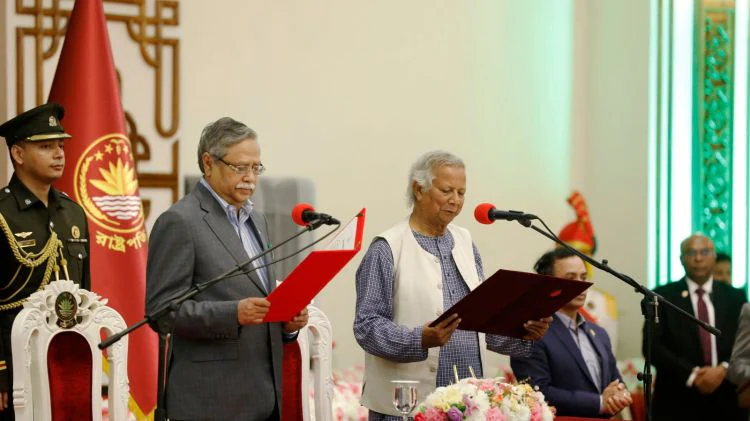
Bangladesh’s history is marred by periods of military rule, and the recent developments have reignited fears that the nation could regress to a state where the military exerts significant influence over the civilian government. Analysts have pointed out that the military’s involvement in forming the interim government could undermine the democratic institutions that Bangladesh has worked hard to establish over the past few decades. The international community, particularly neighboring countries like India, is closely monitoring the situation, wary of the potential implications for regional stability.
The uncertainty surrounding the leadership of the interim government also raises questions about the military’s true intentions. While they have pledged to restore democracy and oversee fair elections, the lack of transparency about the interim leadership fuels suspicions that this could be a precursor to prolonged military rule. This scenario is particularly concerning given Bangladesh’s past experiences with military coups, where promises of a swift return to democracy were often unfulfilled
What Is the Future of Bangladesh Under Military Rule?
The future of Bangladesh under military rule is fraught with uncertainty. While the military has officially stated its intention to restore democratic governance through the establishment of an interim government, historical precedents cast doubt on these promises. Bangladesh has a complex history with military rule, where military regimes have often taken control under the guise of stabilizing the nation, only to entrench their power and delay the return to civilian rule.
The international community, including major powers like the United States and regional neighbors such as India, has expressed concerns that the military’s involvement in politics could undermine the democratic gains made in Bangladesh over the past decades. The situation is particularly delicate given the country’s strategic importance in South Asia, where any instability could have far-reaching consequences.
Moreover, the military’s track record in Bangladesh has been marked by periods of authoritarianism and suppression of political freedoms. If the military seeks to extend its influence, it could lead to the erosion of democratic institutions, including the judiciary, free press, and civil society, which are crucial for maintaining a healthy democracy. The fear is that the military might impose a form of governance that stifles political dissent and restricts the freedoms of ordinary citizens, potentially leading to further unrest.
In this context, the role of the international community will be critical in ensuring that the military remains committed to a time-bound transition to civilian rule. Diplomatic pressure and engagement could play a crucial role in safeguarding democracy in Bangladesh and preventing a backslide into authoritarianism. The future of Bangladesh under military rule will largely depend on the actions of both domestic and international actors in the coming months.
What Can India Learn from Its Neighboring Countries?
The ongoing crisis in Bangladesh offers several important lessons for India, particularly in the context of maintaining democratic integrity and addressing public grievances. One of the key takeaways is the critical importance of holding free and fair elections. The allegations of election rigging and voter suppression in Bangladesh have been central to the current unrest, demonstrating how electoral malpractice can undermine public trust in democratic institutions and lead to widespread instability.
India, as the world’s largest democracy, must be vigilant in safeguarding its own electoral processes to ensure that they remain transparent, fair, and inclusive. This includes addressing any potential flaws in the electoral system, maintaining the independence of the Election Commission, and ensuring that all citizens have equal access to the voting process. The situation in Bangladesh underscores the dangers of allowing democratic norms to erode, a lesson that is particularly relevant as India prepares for its upcoming elections.
Additionally, India can learn from the broader regional implications of the Bangladesh crisis. The instability in Bangladesh has the potential to spill over into neighboring countries, particularly in terms of refugee flows, cross-border terrorism, and economic disruption. This highlights the importance of regional cooperation and proactive diplomacy in addressing potential crises before they escalate. India’s role as a regional power means that it must be prepared to engage with its neighbors, including Bangladesh, to promote stability and democratic governance in South Asia.
Finally, the crisis in Bangladesh serves as a reminder of the importance of protecting minority rights. The persecution of Bangladeshi Hindus and other minorities during the unrest is a stark example of how political instability can lead to human rights abuses. India, with its diverse population, must continue to uphold the rights of all its citizens, regardless of their religious or ethnic background, and work to prevent similar situations from arising within its own borders.
Atrocities Committed Against the Bangladeshi Hindu Community
The ongoing Bangladesh crisis has exacerbated the vulnerabilities of the Hindu community, which has been subjected to increasing violence and discrimination. Historically marginalized, Bangladeshi Hindus have often found themselves at the receiving end of mob violence, particularly during periods of political unrest. The current crisis has seen a resurgence of such atrocities, with reports of mob lynching, forced conversions, and the seizure of Hindu properties becoming alarmingly frequent.
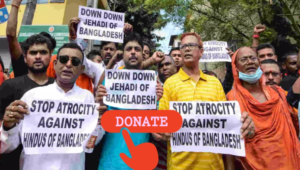
In one of the most shocking incidents, a mob lynching in the Brahmanbaria district left several members of the Hindu community dead. The attackers aligned with extremist ISLAMIST groups, targeted the Hindus under the pretext of punishing them for alleged blasphemy. Eyewitnesses reported that the local authorities did little to intervene, allowing the mob to carry out the brutal attacks.
Another incident in the Chittagong division saw Hindu temples being vandalized, and idols desecrated by mobs enraged over the political turmoil. These attacks are not isolated but rather part of a pattern of violence against Hindus that has been escalating as the country’s political crisis deepens. The forced displacement of Hindus from their ancestral lands has also been reported, with influential figures and local leaders seizing properties under the guise of maintaining public order.
The violence against Bangladeshi Hindus has drawn widespread condemnation, with human rights organizations calling for immediate action to protect minorities in Bangladesh. Amnesty International and Human Rights Watch have both highlighted the increasing danger faced by Hindus, urging the international community to hold the Bangladesh government accountable for failing to protect its minority populations.
The silence of the Bangladeshi authorities, coupled with the complicity of local law enforcement, has only emboldened the perpetrators. Many of the attacks have gone unpunished, creating an atmosphere of impunity where extremist groups feel free to target Bangladeshi Hindus without fear of repercussions. The situation is further aggravated by the ongoing political instability, which has diverted attention away from the plight of minorities.
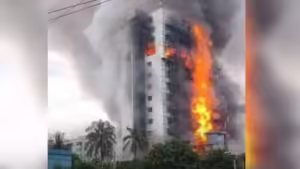
In a broader context, the persecution of Bangladeshi Hindus serves as a stark reminder of the fragile state of minority rights in the country. As the crisis continues to unfold, the safety and security of Hindus and other minorities remain uncertain, with the potential for further violence looming large. This underscores the urgent need for international intervention and stronger safeguards to ensure that the rights of all citizens, regardless of their religious affiliation, are protected in Bangladesh.
The crisis in Bangladesh has indeed put a spotlight on the precarious existence of the Hindu community, and their plight mustn’t be ignored amidst the political chaos. The international community, including India, must continue to monitor the situation closely and advocate for the protection of these vulnerable populations.
Our Opinion
In 1971, a man named ‘Sheikh Mujibur Rehman’ played a huge role in creating the land of Bangladesh. Millions died, thousands of women were raped and tortured by the Pakistani Army. But the whole DEMOCRATIC WORLD was mum.
Then we saw Sheikh Hasina shortening her China trip as she was not happy with the meager 100-million-dollar deal done by the Chinese. Hasina found it insulting and she came back to Dhaka one day before schedule.
Today, we are seeing a military coup in a state that was working fine just a few months ago. Then, suddenly Sheikh Hasina claims that a “White Man” wants to borrow land in Bangladesh to create Military bases there.
Sheikh Hasina, being a proud Prime Minister declined their offers. Our question is, who’s next on their radar?
We have witnessed many major protests in India as well. The same toolkit that worked in Bangladesh was being used in our National Capital as well. First Shaheen Bagh, the “ANTI CAA PROTESTS” that claimed many lives in Delhi, UP, and many other areas. And then the Farmer’s Protests which again claimed hundreds of lives.
Modi has already been declared a “DICTATOR” by many so-called journalists. What we don’t understand is, why they understand the simple fact that India is now, the ONLY functional DEMOCRACY in this entire region. Here, we have created a list for you to better understand the problems we are facing with each of our neighboring countries right now:
The evergreen terrorist supplier to the world, Pakistan remains a persistent concern due to strained relations stemming from the Kashmir conflict and cross-border terrorism. The country’s ongoing economic crisis, political instability, and ties with China through the China-Pakistan Economic Corridor (CPEC) further complicate matters. Recent terrorist attacks, allegedly sponsored by Pakistan, have heightened tensions between the two nations.
Nepal presents challenges related to political instability, which affects policy consistency and bilateral cooperation. The growing economic ties between Nepal and China, particularly through the Belt and Road Initiative (BRI), have raised concerns in India. Additionally, unresolved border disputes, such as the Kalapani issue, continue to strain relations.
In Sri Lanka, India plays a key role in supporting economic recovery efforts, yet ongoing issues like the Katchatheevu island dispute, the treatment of the Tamil minority, and the implementation of the 13th Amendment remain points of contention.
The Maldives has seen a shift towards a pro-China stance following recent elections, accompanied by calls to reduce Indian military presence and the emergence of the “India-Out” campaign, posing challenges to India’s influence in the region.
Myanmar‘s political landscape has been destabilized by military coups and civil unrest, leading to instability. India faces difficulties balancing its strategic interests with human rights concerns, particularly with the ongoing Rohingya refugee crisis and increased Chinese influence in Myanmar.
Bhutan is working to diversify its foreign relations and reduce economic dependence on India, which presents new challenges in maintaining strong ties. The unresolved Doklam issue, involving China, and the need to update India-Bhutan relations to reflect Bhutan’s evolving aspirations, are key concerns.
Finally, Afghanistan has undergone significant changes with the Taliban’s return to power, reshaping regional geopolitics. India’s investments in Afghan development are now at risk, and the challenge lies in maintaining strategic influence through humanitarian assistance in a rapidly changing environment
I sometimes feel blessed that I was born in this amazing nation. Where everyone is heard and where we don’t have to worry about Islamic terrorists barging into our houses and committing heinous crimes with our families. But till when? These illegal immigrants, Bangladeshi Islamic terrorists and extremists have been entering the nation since 1971.
They have ruined their nations. Every nation that they have set foot in is in ruins today. Look around the world and try to find ONE reason for all the chaos we are witnessing. You will find it but maybe you won’t be able to say it. That’s why we call ourselves the New India’s voice.
People are fed up.
We need PM Modi to act fast for our Bangladeshi Hindu brothers and sisters. Also, our opposition and the students who protested against CAA should be named, blamed, and shamed in public. If it wasn’t for their unreasonable protests and anti-national acts, many of these Bangladeshi Hindus could have been saved. The images that are coming out of Bangladesh are horrifying to the core.
We wish to help our Hindu Brethren but unless our government decides to step in, we won’t be able to do anything. All we can do right now is genuinely report the crimes against humanity that a certain section of the PEACEFUL COMMUNITY is committing against Bangladeshi Hindus. After all, Hindu hatred was the core of their creation. Back when Bangladesh was called East Pakistan.
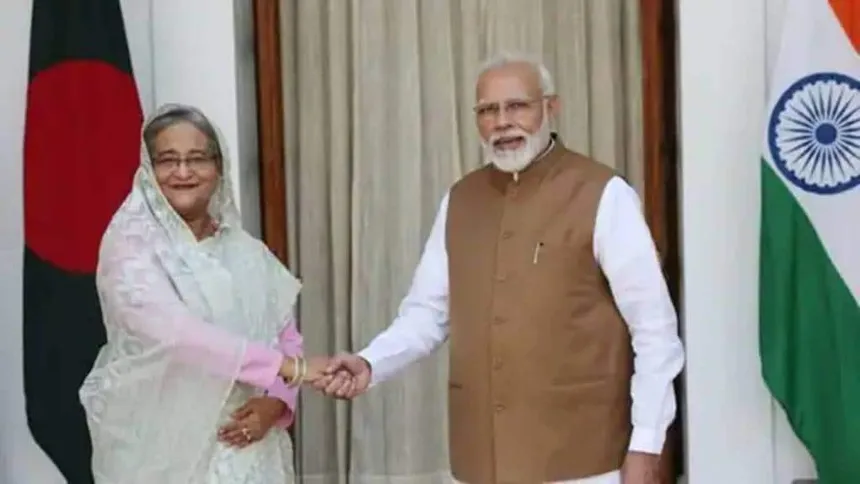
In conclusion, the Bangladesh crisis represents a significant challenge not only for the country itself but also for the broader region. The parallels to the days of “East Pakistan” are alarming, and the potential return to military rule threatens to undo decades of democratic progress. As India watches the developments unfold, it must prepare for the potential consequences and ensure that it remains a stable and democratic force in the region. All eyes should remain on the plight of the Bangladeshi Hindus and other minorities, who are often the first to suffer in times of political turmoil.
Till the Next Time
This is New India
Signing Off…
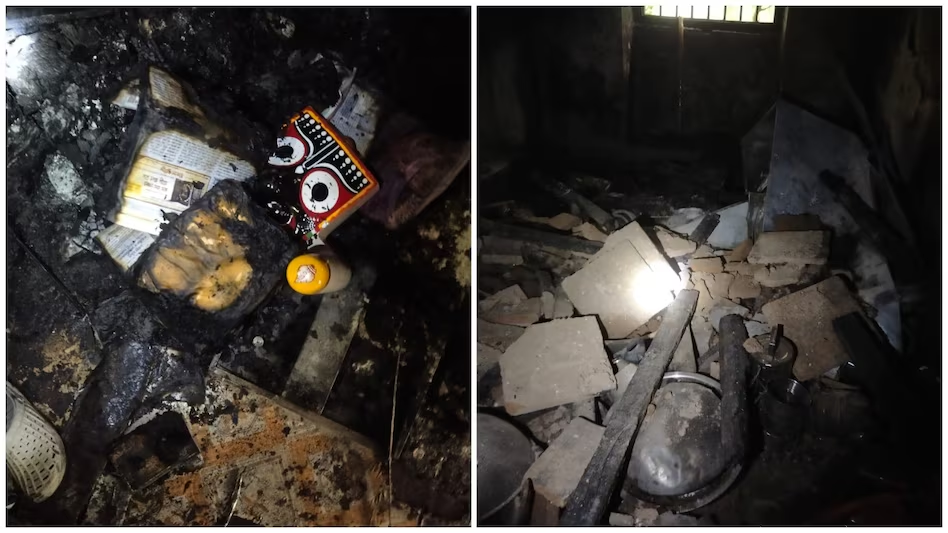
Leave a Reply